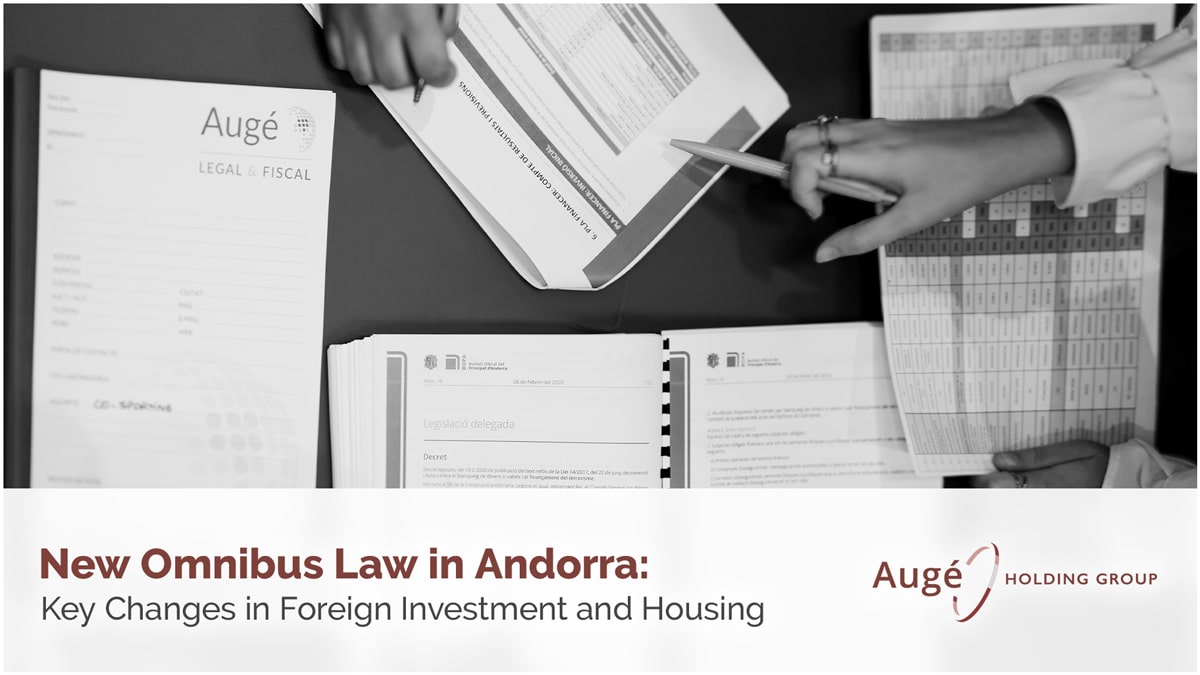Each year, the income tax season provides an opportunity to fulfill our tax obligations and, in many cases, optimize our financial situation. Now that the IRPF campaign has ended (in Andorra, it finishes in September), we can look back and identify the most common mistakes that are easy to make and can lead to penalties, loss of deductions, or tax benefits. Here are some of the most frequent errors in the IRPF declaration and how to avoid them:
Table of contents
Toggle1. Not including all income
One of the most common mistakes is failing to declare certain income, either due to oversight or ignorance. Some sources of income are often forgotten, such as income from temporary rentals, the sale of personal items that generate a capital gain, or profits from foreign investments. This includes cryptocurrencies, a source of income that has become increasingly popular and is under close fiscal scrutiny in some countries.
2. Not applying the deductions you’re entitled to
Deductions are a powerful tool for optimizing IRPF payments. However, many taxpayers are unaware of all the deductions available to them, such as those for large families, disability, or investment in new companies. Additionally, in Spain, it’s important to check for regional deductions, as these can vary significantly from one community to another. It’s advisable to review these every year to see if they have changed.
3. Incorrectly claiming a dependent child or parent
Another common error occurs when a taxpayer incorrectly claims a dependent child or parent on their tax return. If the family member earns more than the Minimum Wage, they no longer qualify as a dependent for tax purposes, which eliminates the right to apply certain deductions and tax benefits. This oversight can lead to tax audits and the repayment of wrongly claimed deductions.
4. Not declaring benefits in kind
Benefits in kind are also considered taxable income and must be declared, even if they are not received in cash. This includes perks like company cars, health insurance, Christmas hampers, paid meals, and other additional benefits provided by an employer.
5. Incorrectly declaring the primary residence
This is especially important for Spanish IRPF declarations, where mistakes in declaring the primary residence are common, particularly when there have been changes of address or property sales. Exemptions for reinvestment or deductions for investment in the primary residence only apply under certain conditions.
6. Incorrect calculation of capital gains
The taxation of income from bank accounts, dividends, and other financial products can be complex, especially if you have foreign investments or cryptocurrency holdings. Banks don’t always provide all the necessary information, so it’s crucial to review each investment’s data and ensure that income has been calculated correctly. A mistake in this section can lead to penalties and potential audits.
7. Not including imputed income from real estate
This is important for both residents in Spain and Andorra. Taxpayers who own real estate in Spain that is not rented out and is not used as a primary residence must declare imputed income for these properties. Forgetting to do this is one of the most common errors. Tax authorities can easily detect this through property registries, and failing to report it can result in penalties. If the taxpayer is a fiscal resident in Andorra, they will also need to declare it through the IRNR (Non-Residents Income Tax) model 210.
8. Errors in joint declarations
Filing jointly can be an attractive option for couples, but it’s not always the most beneficial. Choosing between a joint or individual declaration can have a significant impact on tax liabilities, especially when both spouses have high incomes. It’s advisable to calculate both options before submitting the declaration.
9. Failing to update personal and family information
Personal changes, such as the birth of a child or the start of a marital relationship, directly affect your IRPF declaration. Failing to update your family details can lead to errors in applied deductions or exemptions.
10. Applying all tax deductions without considering future tax credits
It’s common for taxpayers, in an effort to reduce their tax burden, to apply all possible deductions for the current year, without considering that some tax credits can provide benefits in future years. For example, deductions for investment or double taxation relief. Proper planning can help avoid excessive payments in future years and improve the taxpayer’s long-term tax position.
IRPF is one of the most important and often complex tax obligations that taxpayers face. Making mistakes can result in fines, surcharges, or the loss of tax benefits. To avoid these issues, it’s advisable to seek support from tax experts who can provide guidance based on the specific details of each situation. At our firm, we help our clients manage their IRPF safely and efficiently, avoiding common mistakes and always seeking the best possible tax advantage.





